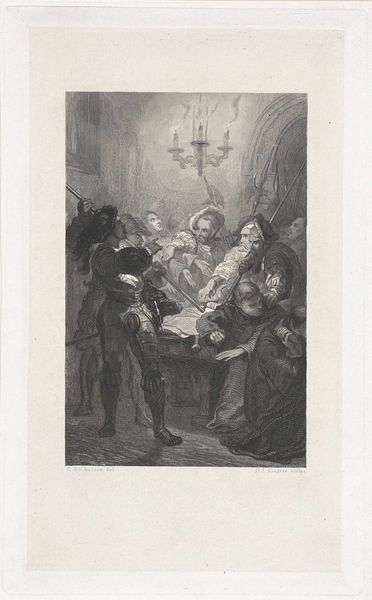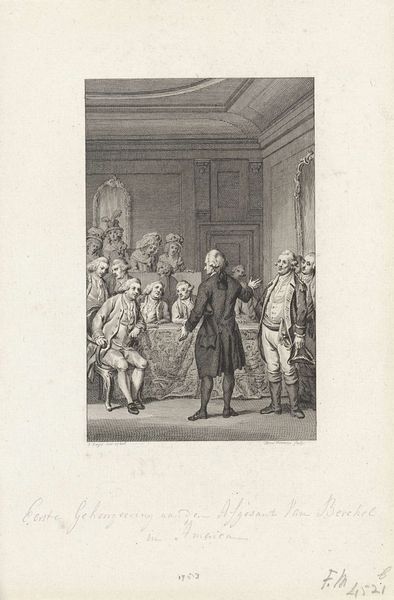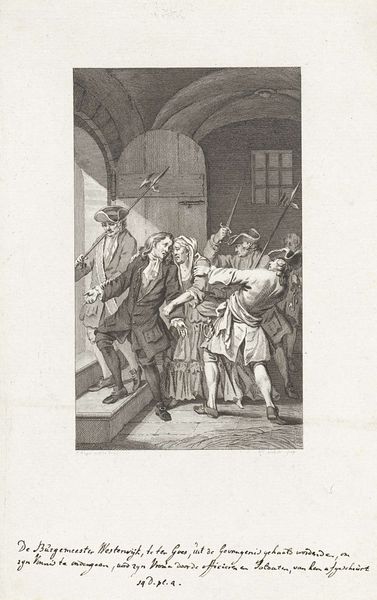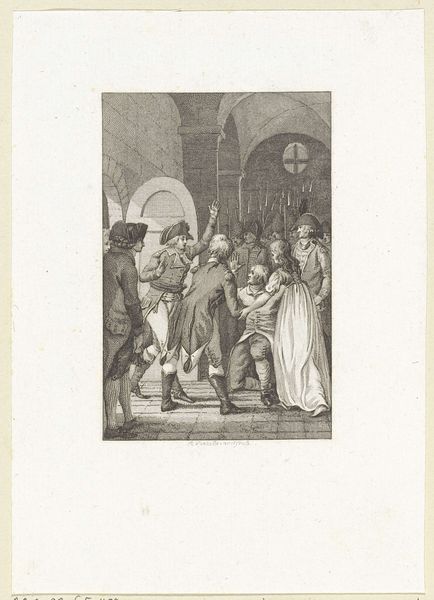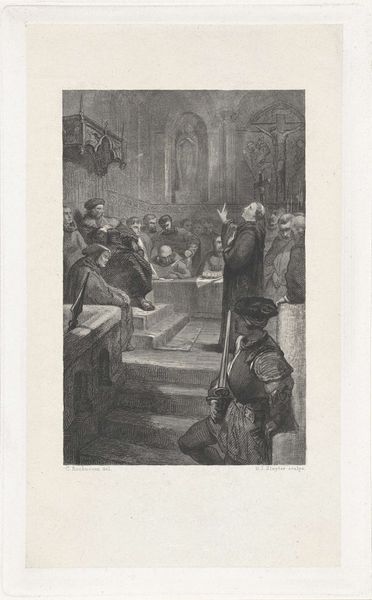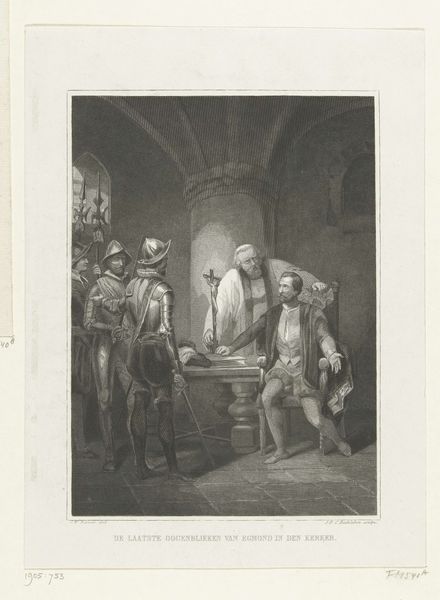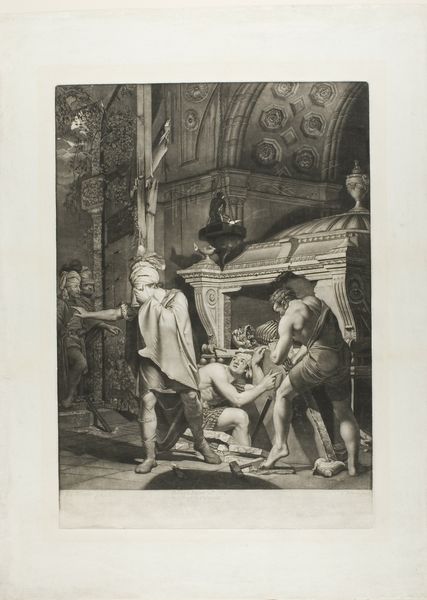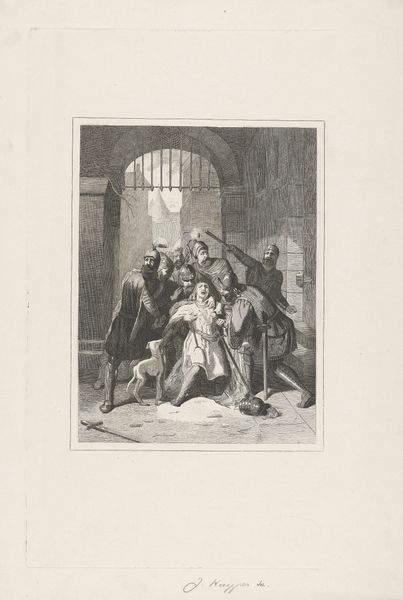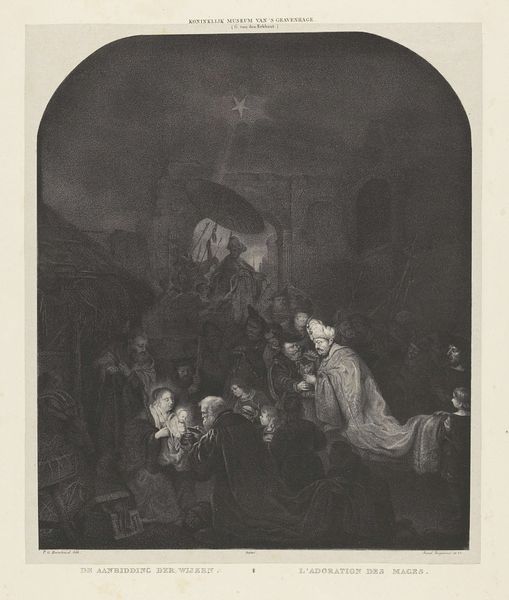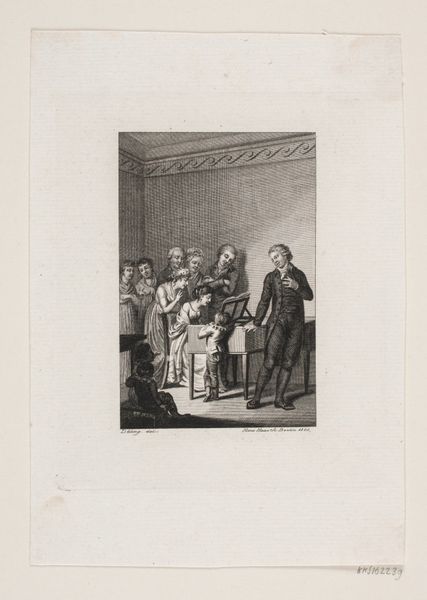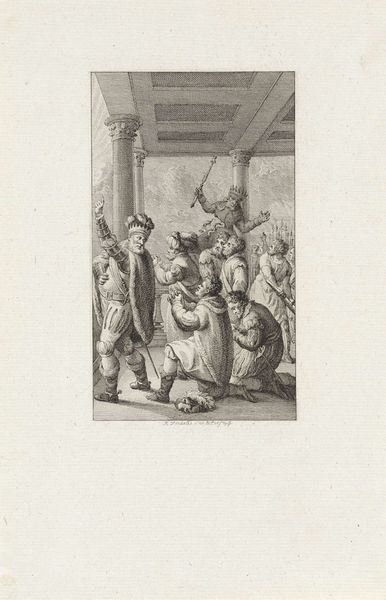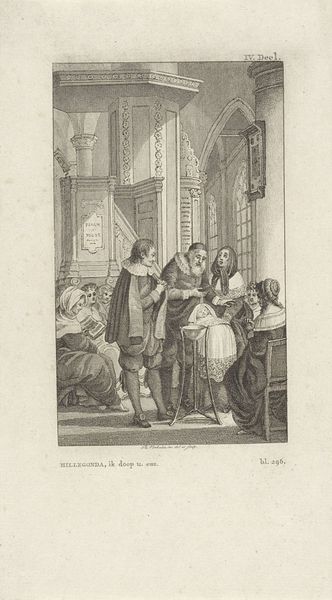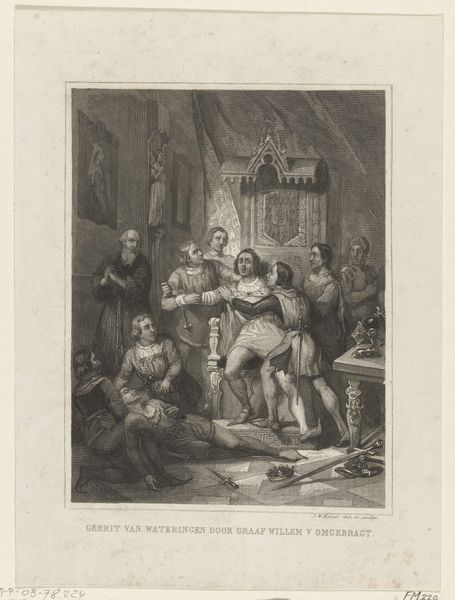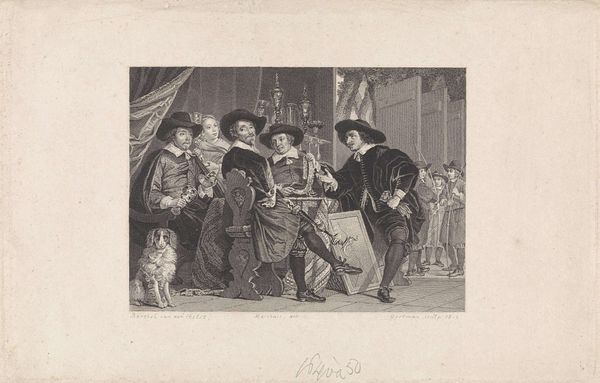
print, engraving
#
narrative-art
# print
#
history-painting
#
academic-art
#
engraving
Dimensions: height 224 mm, width 177 mm
Copyright: Rijks Museum: Open Domain
Editor: We're looking at "Jan van Domburg geeft zich over, 1446," an engraving created between 1844 and 1846 by Johann Wilhelm Kaiser, currently held in the Rijksmuseum. It feels very theatrical, with this dramatic lighting. What strikes you about the composition? Curator: The composition hinges upon the receding planes and stark contrast. Notice the architectonic framing; the doorway not only contains the narrative, but emphasizes a spatial depth with perspectival exactitude. Further, observe how the artist uses value—the blacks and whites—to guide the eye toward the focal point: Jan’s bowed head. What effect do you think that has on the overall meaning? Editor: It definitely emphasizes his submission and defeat. The light seems to highlight him as well as the people behind him while casting his conquerors in relative shadow, despite their victory. Is there a deliberate symbolism in this contrast? Curator: The engraving, considered in terms of line and tone, yields fascinating insights. Kaiser's mastery of the burin manifests in the fine gradations of shadow, effectively creating depth. The very texture becomes expressive; the crisp lines delineate form and emphasize the tension between victor and vanquished. What visual cues within the structure indicate the underlying power dynamic? Editor: The conquerors look firm with their weaponry in hand, standing firmly, ready for anything else coming their way. Seeing Kaiser’s print with this fresh perspective illuminates the subtleties in his technique. Curator: Indeed. We see the expressive capacity within what initially might seem to be a straightforward historical depiction. Thinking structurally helps appreciate his expertise.
Comments
No comments
Be the first to comment and join the conversation on the ultimate creative platform.
